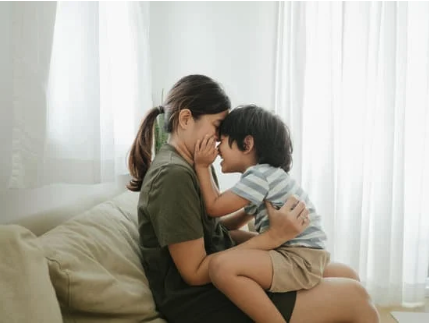Rewriting the Stories We Tell Ourselves: Changing Core Beliefs as Parents
Parenting often brings out the best in us — but it also reveals the stories we’ve quietly carried for years. The ones that whisper, “I’m not patient enough,” or “I always mess things up.”
These stories are called core beliefs, and they shape how we see ourselves, our children, and the world around us.
What Are Core Beliefs?
Core beliefs are the deeply held assumptions we form early in life. They help us make sense of our experiences — but sometimes, those early lessons don’t serve us well as adults or parents.
Maybe you grew up in a home where emotions were dismissed, so you learned that being calm means being quiet.
Or perhaps mistakes were punished harshly, so now when your child spills milk, it feels like failure instead of a learning moment.
When left unchecked, old core beliefs can quietly drive how we react, parent, and even love.

How Core Beliefs Influence Parenting
As parents, our beliefs often become the “invisible scripts” guiding our responses:
- “If my child is upset, I must fix it immediately.”
- “Good parents don’t lose their temper.”
- “My worth depends on how well my kids behave.”
These beliefs can create pressure, guilt, and disconnection — not because we don’t love our kids, but because we’re trying to parent through outdated wiring.
The Process of Change
The good news is that core beliefs can be rewritten.
Therapeutic approaches like Cognitive Behavioral Therapy (CBT) and Parent Coaching focus on identifying and challenging these old patterns.
The process often includes:
- Awareness – Noticing when you’re triggered or stuck in an emotional loop.
- Exploration – Understanding where that belief came from (and whose voice it really is).
- Reframing – Replacing the old thought with one that aligns with your values and goals as a parent.
This isn’t about “fixing” yourself. It’s about freeing yourself to parent from a place of connection and self-compassion.
Why It Matters for Families
When parents begin shifting core beliefs, it changes the emotional tone of the whole household.
A parent who once felt “I’m failing” begins to think, “I’m learning — and my child is too.”
That mindset shift ripples outward, creating safety, patience, and emotional availability — the foundation for secure attachment and confident kids.
How Braxton Storm Helps
Through Connected Parent Coaching and therapeutic support, Braxton helps parents uncover the belief systems shaping their family dynamics.
He combines professional insight with practical tools you can use every day — turning awareness into action.
Because changing the story you tell yourself changes the story your child will one day tell about their own childhood.
Ready to explore your own patterns and create calmer, more connected parenting moments?
Schedule a consultation with Braxton Storm today and start rewriting the story.

